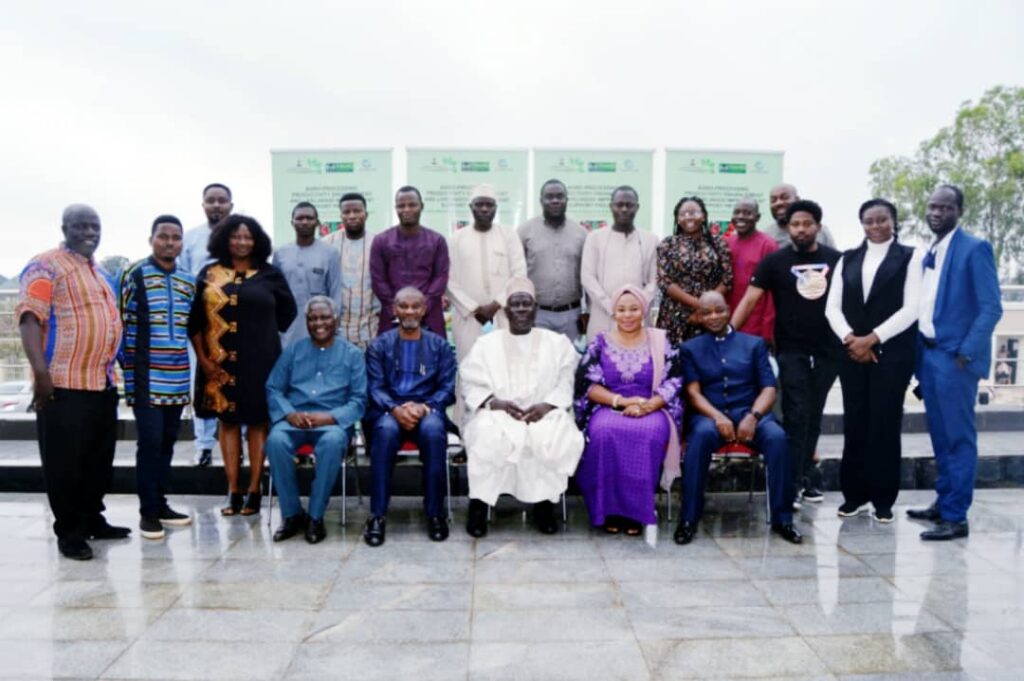By Moses Ebosele, ebosele@hotmail.com —
The National Project Coordinator, World Bank Agro-Processing, Productivity Enhancement and Livelihood Improvement Support (APPEALS),Alhaji Mohammed Sani Jobdi has pledged the commitment of the scheme to collaborate with relevant institutions to ensure the smooth and successful implementation of the project in Nigeria.
Speaking on Monday at a workshop for Journalists in Nasarawa State, Jobdi said Capacity building and support to collaborating institutions is a key component of the APPEALS Project, “with the broad aim of building the capacities of collaborating partners and stakeholders that are participating in the implementation of the project, so as to promote knowledge sharing and facilitate the exchanges of experiences“.
“Our strategic communication approach is to consolidate our relationship with the media, to utilise available communication channels to facilitate the realisation of the project development objective, which is to enhance the agricultural productivity of small and medium-scale farmers and to improve value addition along the priority value chains in the participating states.”
Meanwhile, a total of 39,209 have benefited directly from the projects being implemented across six states in Nigeria.
Project Operations Manager, Dr Salisu Garba explained that the project indirectly benefited 196,045 in a total of 87 Business Alliances and out-grower schemes established across the six participating states of Cross River – 19, Enugu-5, Kaduna–16, Kano-25, Kogi-4, and Lagos -18.
While presenting the project’s overview, Garba said the project has empowered 8,078 youth and women with business, technical and life skills training, support to business planning, facilitation of business name registration with Corporate Affairs Commission (CAC), start-up grant to establish a commercially viable business.
He said five percent of the total number of Women and Youth Empowerment Programme (WYEP) beneficiaries of 10,000 representing at least 500 from the International Development Association (IDA) funding have been set aside for People With Disabilities and Special Need (PWDSN), adding that they are currently being trained and empowered.
He said “the WYEP beneficiaries are open to choosing any other value chains, but within the selected priority value chains for the project. This flexibility has enabled the youth to select commodities of high sustainability with quick returns on investment and high potential for foreign exchange generation and wealth creation.
The Project Operations Manager said a lot of achievements have been recorded in Kano, Kaduna and Cross River States where a total of about 5,052 farmers have either been linked to market outlets.
His words: “The project outcome indicator for productivity increase was 35 percent for each value chain. And as of the mid-term review (February 2021), all the value chains have surpassed the 35 percent targeted yield increase from baseline figures. Across all the value chains, there was a 48.9 percent increase in average yield. This is above the average of 35 percent targeted at the onset of the project.
“Increase in processed output of the priority value chains by project beneficiaries a minimum of 40 percent increase in processed products was expected for all the value chains. As at MTR, data from processed cassava, rice, aquaculture, and wheat showed an average increase of 47.7 percent. This is higher than the expected increase in processed output of value chains of 40 percent.”
Garba said the APPEALS Project has also provided 25 agribusiness clusters out of the targeted 50 of the project with infrastructure such as borehole, box-culvert and tube wells.







